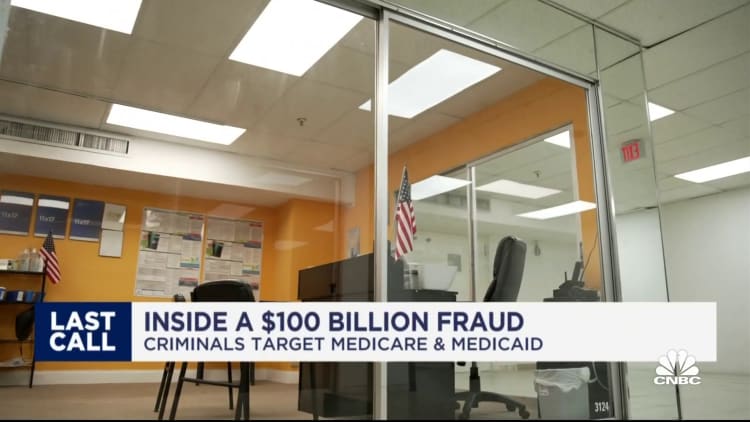Sen. Bernie Sanders, I-Vt., speaks at a press conference outside the U.S. Capitol Building on May 4 in Washington, D.C.
Anna Moneymaker | Getty Images News | Getty Images
For many Americans, a medical emergency can lead to a financial crisis due to the high cost of health care in the U.S.
This week, Sen. Bernie Sanders, I-Vt., is renewing his push for a new approach — Medicare for All — that he touted as a presidential candidate.
“The current health-care system in the United States is totally broken,” Sanders said Tuesday at a Capitol Hill event.
“It is totally dysfunctional, and it is extremely cruel,” he said.
With the support of Democratic Reps. Pramila Jayapal of Washington and Debbie Dingell of Michigan, the lawmakers plan to re-introduce a bill, titled Medicare for All Act of 2023, in both the House and the Senate on Wednesday.
More from Personal Finance:
Debt ceiling woes point to need for entitlements reform
IRS to offer free online direct filing system for some in 2024
How federal payments may be delayed in debt ceiling standoff
In the House, the proposal will have 112 co-sponsors, more than they have ever had at the introduction of the bill, Jayapal noted, despite having fewer Democratic seats.
Medicare for All would create a single-payer program, which would allow one source to collect all health-care fees and pay all health-care costs.
“It is long overdue for us to end the international embarrassment of the United States being the only major country on earth that does not guarantee health care to all of its people,” Sanders said. “Now is the time for a Medicare for All single-payer program.”
Some patients currently can’t afford care
Research shows many Americans suffer under the burden of high health-care costs.
Almost 1 in 10 adults, or approximately 23 million people, owe medical debt, research from KFF found last year. About 11 million people owe more than $2,000 and 3 million people owe more than $10,000, the independent health policy research provider found.
Some families have filed for bankruptcy, Sanders noted, after serious conditions like cancer or heart disease have left them with unmanageable hospital bills.
The inequities tend to affect low-income and minority and immigrant communities, said Nancy Hagans — who has served as a critical care nurse for over 35 years in Brooklyn, New York — during Tuesday’s Capitol Hill event.

During her career, Hagans said she has seen patients not get the care they need because they don’t have health insurance, or if they do, because they can’t afford the high deductibles or co-pays. Others have been forced to choose between taking their medications or putting food on the table for their children, she said.
“Our current system discriminates on your ability to pay, what kind of job you have or if you have a job at all,” said Hagans, who currently serves on the Council of Presidents of National Nurses United and president of the New York State Nurses Association.
‘Why don’t we have Medicare for All?’
Sanders has called for comprehensive health care with no networks, premiums, deductibles, copays or surprise bills.
He has also called for expanded Medicare coverage to include areas like dental, hearing, vision, mental health and substance abuse treatment, in-patient and out-patient services, and home-and community-based long-term care.
He also wants to cap what patients pay for prescription drugs.
A protestor at the 2022 March for Medicare for All in Washington, D.C.
Probal Rashid | Lightrocket | Getty Images
After dealing with the hassles of going through private insurance, many people tend to ask, “Why don’t we have Medicare for All?” noted John Holahan, institute fellow at the Health Policy Center at the Urban Institute.
But the answer is not that simple, he said.
“They really want a system that’s ‘everybody’s in it and everything is free and providers are paid the Medicare rates,'” Holahan said. “The current Medicare looks a lot different than what they are talking about.”
Making the economics work may also be difficult, according to Holahan.
Medicare rates are lower than what private insurers pay. Making it so Medicare rates are used across the board would result in savings for patients and employers. But it would also prompt substantial drops in income for physicians and providers and less revenue for hospitals.
The tax increases that may be required to implement a single health-care system may make it a non-starter, Holahan said.
Another alternative could be to create a public option that would allow workers to choose between government and private plans, he said. Implementing rate controls for hospitals or prescription drugs would also be “major advances,” according to Holahan.
 EU News Digest Latest News & Updates
EU News Digest Latest News & Updates



